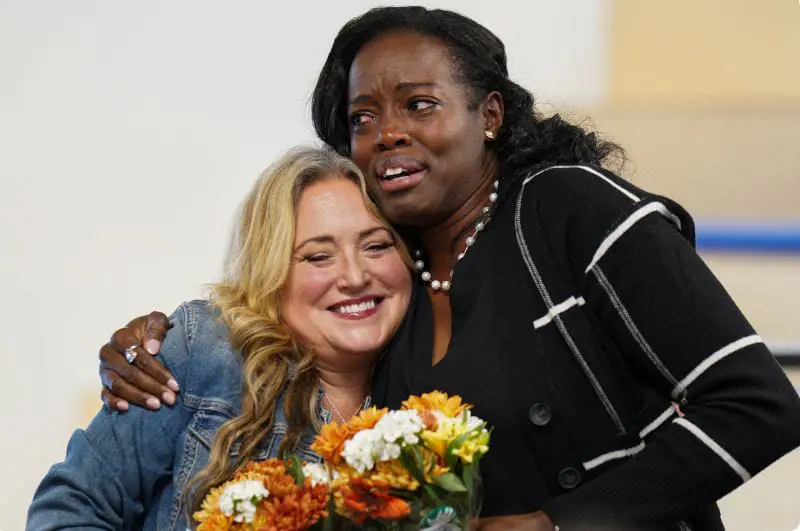How Indy doulas can help Black moms have a safer childbirth
INDIANAPOLIS (MIRROR INDY) — In the delivery room, Ashley Scruggs tried to advocate for herself.
The Black woman from Lawrence had a plan she created with her doula and medical team: a natural birth without medication. But her OB-GYN was out of town. And instead of listening, Scruggs said, the white doctor who was on call called her “stubborn” and pushed her to have a cesarean section.
After several hours of not being heard, Scruggs requested and got another OB-GYN.
That was 2015. Now, she has more experience and a leadership position at United Way of Central Indiana. But there’s still the reality of discrimination.
“The moment I put that gown on, I’m not a vice president or educated,” the 39-year-old mother said during a maternal health event Nov. 13 at 16 Tech. “None of that matters. It makes me sad we are still going through this.”
Her story is far too common in Indiana, which has the third-highest maternal mortality rate in the nation. State health department data shows Black women are 73% more likely to die in childbirth than their white counterparts.
Marion County’s mortality rate for Black infants — about 11.4 deaths per 1,000 births — is also above the national average, which is 10.8. Those numbers more than double in zip codes on the city’s east and west sides.
The startling outcomes are linked to systemic racism, a November report from nonprofit Just Community Inc. found: Black mothers in Indianapolis are facing barriers to accessing quality health care and support during pregnancy and after. Even doctors themselves are not immune; in 2021, Chaniece Wallace, a resident physician at Riley Hospital, died after giving birth to her daughter. Wallace’s death raised questions nationally about the treatment Black women receive in hospitals.
“Every Black woman I spoke to had a story,” said Nicole Carey, Ph.D, the lead investigator for Indy Equity Collaborative, a consulting firm that headed the research. “It was the story of being dismissed or not taken seriously, or something more horrific.”
The report highlights a key solution: doulas. These trained professionals support and advocate for mothers in and outside the delivery room, and their presence is associated with shorter labor times and fewer cesarean births.
When she felt the doctor in the delivery room was dismissive, Scruggs turned to her doula.
“She cared and listened to me,” Scruggs said. “She made the experience positive.”
But doulas in Indiana have long been underpaid — and the state hasn’t finalized a Medicaid reimbursement benefit for their work. The Indiana General Assembly passed a bill to address the issue in 2019, but no funds were allocated for the legislation.
“There are financial barriers for people who receive services and for us as doulas to provide them,” said Joslyn Cunningham, a provider in Indianapolis. “The reimbursement would expand what can be offered to Black families.”
State Rep. Vanessa Summers, D-Indianapolis, said she will push the issue during the 2025 session.
“I need all of you to figure out who your legislators are and talk to them about maternal health,” Summers told the crowd. “Because most of them are men or white, and they don’t understand.”
Doulas, too, are trying to spread the word about their services. In a recent survey of Marion County residents, 24% said they did not know what a doula was.
“We have to tell our stories and get out in the community,” Cunningham said. “Because if we repeat history, we will continue to see people die.”
Mirror Indy reporter Mary Claire Molloy covers health. Reach her at 317-721-7648 or email maryclaire.molloy@mirrorindy.org. Follow her on X @mcmolloy7.
